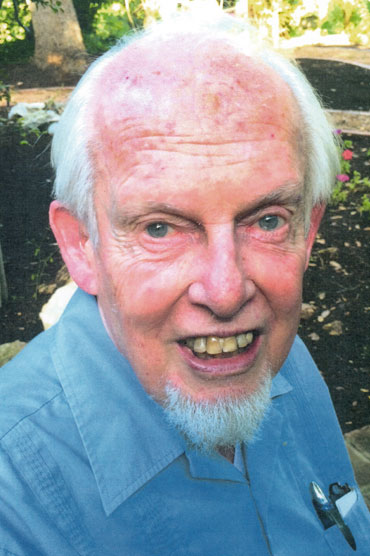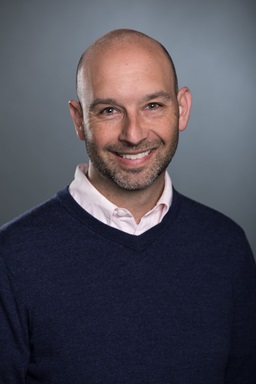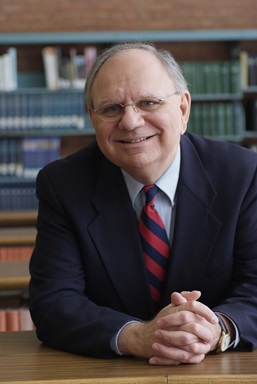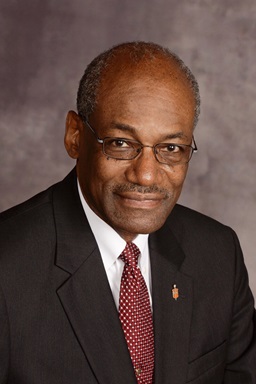
Has The United Methodist Church actually become the Untidy Methodist Church as we face critical decisions at the 2019 General Conference to choose a path forward?
The Council of Bishops has published potential plans for the future of Methodism. Our founder John Wesley’s plan was, “If your heart is as my heart, give me your hand” — not “if your beliefs are as mine,” but your heart. He was saying, “Are your desires like mine?”
Wesley was a prolific writer, and just as “the devil can quote Scripture to his cause,” so people can quote Wesley to support many different aspects of our Christian Journey. But in his writings, he emphasized what he felt was the most important.
When some early Methodist followers wanted some general rules, Wesley responded with three, adding some examples for his time. The first general rule is “Doing no harm,” which for the current crisis of Methodism means doing no harm to LGBTQ people. I emphasize people, because they are in mind and heart and soul just like all of us, needing all that Methodism can offer for their and our salvation journey in today’s complex life.
The second of Wesley’s three general rules I summarize as “love your neighbor as yourself,” and the third, worship. What do these three say about people who are LGBTQ? About homophobia?
Commentaries
In Wesley’s “A Plain Account of Genuine Christianity,” he wrote that a Christian is “full of love to his neighbor: of universal love, not confined to one sect or party, not restrained to those who agree with him in opinions, or in outward modes of worship, embracing neighbors and strangers, friends and enemies.”
That love “prevents his willingly hurting or grieving any man” and guides him into a “uniform practice of justice and mercy.”
When Jesus was asked, what is the greatest commandment, the answer was not beliefs or Bible verses, but love of God and neighbor. He focused on concern and care for people!
So, what is the origin of the hurtful feelings some of us feel toward LGBTQ people?
In my adolescent years — I am now 90 — I remember distant and vague memories of sneering comments about conquests of girls, and sharply cutting labels for gay boys, and the hateful scrawling on restroom panels. The worst memory is that they did not hurt me then. Can you remember how ubiquitous these were?
How can we change ancient attitudes that seem to become our firm prejudices?
A significant event in my life was my dad's recovery from alcoholism through Alcoholics Anonymous and our many long conversations about recovery, which actually is discernment and discipleship.
Once we recognize that we have been infected by the deadly virus of those feelings and prejudices and desire to leave them behind, we recognize Jesus’ and Wesley’s emphasis on how we feel and how we live. Now we are taking the first step in recovery — to becoming recovering homophobes, recovering racists.
The next step is turning to the author and finisher of our faith to give us motivation, insight and courage, because recovery from addictions is hard work.
Because those memories and feelings are so deeply rooted within us, the most critical step is taking frequent moral inventory of how we are doing in recovery. Just as a retail store takes inventory to get rid of useless stock; so, we must take moral inventory to find what is hindering our life, our development, our holiness. We need repeated moral inventories to be certain we are progressing in recovery and discerning. I pray we all are working at becoming recovering homophobes, recovering sexists or misogynists, recovering racists.
As I reflect on our Methodist situation, I wonder if gay marriage may be our major stumbling block. Have we come to recognize — perhaps reluctantly — that some of the people we respect are LGBTQ men or women? And can we reflect on our own ancient, poisonous attitudes and feelings in our distant past, and use the tools of recovery?
I’ve talked with pastors of larger United Methodist churches who said they have gay and lesbian people active in their churches — some of whom are couples who have lived committed lives together for decades. Some of these are officers and leaders in their churches. Is this a vision for The United Methodist Church?
John Wesley’s trademark “If your heart is as my heart” sounds like an echo of Jesus: “Come to me, all you who are weary, and I will give you rest. Take my yoke upon you, for my yoke is easy.”
Galilean carpenters like Jesus sculpted yokes to fit the shoulders of individual oxen, so they could work all day without developing any discomfort or sores. Harder carpentry was sculpting for two oxen or “a yoke of oxen.” Jesus the Risen Carpenter wants to tailor our work of discernment and discipleship.
Are the Methodist people, as Wesley asks, “doing no harm?” Are we welcoming all people, even embracing all people to build an inclusive community of faith that includes recovering homophobes, recovering sexists, recovering misogynists?
At General Conference 2019 we can sculpt a United Methodist Church, following the inviting teachings of Jesus and his disciple, John Wesley, so we set a course for a United Methodist Church growing in discernment and discipleship, in witness and glory.
Yeaman is a retired pastor and social worker in Austin, Texas, and a member of the Rio Texas Conference.
News media contact: Vicki Brown at (615) 742-5470 or newsdesk@umcom.org. To read more United Methodist news, subscribe to the free Daily or Weekly Digests.
Like what you're reading? Support the ministry of UM News! Your support ensures the latest denominational news, dynamic stories and informative articles will continue to connect our global community. Make a tax-deductible donation at ResourceUMC.org/GiveUMCom.



